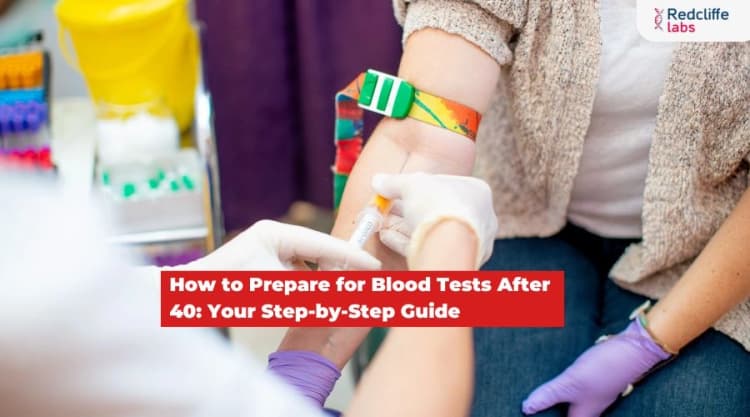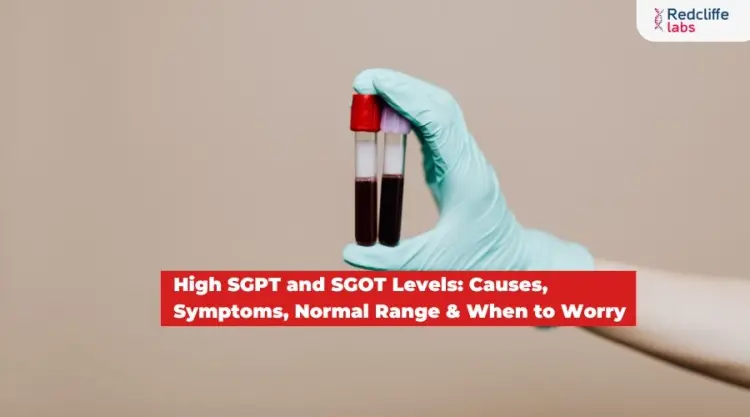Blood
Unlock special
discount on
this package
Login to Unlock 🔓
NABL Accredited lab*

Booking Benefits Unlocked Worth FREE 799

Report Consultation

Diet Plan
*Available once your report is generated.
At Redcliffe Labs, we have a single goal: to give India its right to quality diagnostics.
Customers served
Tests Processed Everyday
Cities
Collection Centres
World Class In-house Labs
Home Collection Experts
1 Test Parameters
Vitamin K1 (Phylloquinone) Test
1 PARAMETER INCLUDED
1 PARAMETER INCLUDED
- Vitamin K1 (Phylloquinone) Test
Top Booked Health Checkup Packages
Reports in 12 hours
|Parameters 94
Reports in 12 hours
|Parameters 96
Reports in 12 hours
|Parameters 89
Reports in 12 hours
|Parameters 96
Reports in 12 hours
|Parameters 90
Verified by Medical Expert

WRITTEN BY
Sheena Mehta

MEDICALLY REVIEWED BY
Dr. Pradeep Lodha
Table of Content
Introduction to Vitamin K1 (phylloquinone) Test
Vitamin K is responsible for blood clotting, helping wounds to heal. It also helps regulate bone calcium levels. Adequate vitamin K ensures improved bone health while reducing the risk of fractures. The vitamin K test is performed to measure the levels of phylloquinone. It is one form of vitamin K. Your healthcare provider may suggest a test to measure vitamin K levels in the blood. It will help rule out a vitamin K deficiency based on symptoms such as excessive bleeding, bruising, and weakened or brittle bones.
A vitamin K test is a blood test performed to detect a vitamin K deficiency. Vitamin K deficiency is rare in adults and could be due to malabsorption disorders such as celiac disease, cystic fibrosis, or Crohn’s disease.
If suggested, book a vitamin K test from Redcliffe Labs now. Get your sample collected at home and accurate reports within a stipulated time.
Test Details:
| Also known as | Phylloquinone, phytomenadione, phytonadione, and vitamin K1 test |
| Purpose | The Vitamin K1 phylloquinone test monitors the Vitamin K levels in the blood. Vitamin K is important for synthesizing clotting factors essential to a blood clot. |
| Preparation | Do not drink or smoke before the test. |
| Fasting | No fasting is required |
| Get Reports Within | 6 days |
| Sample | Blood |
| Home Sample Collection | Available |
| Actual Cost | INR 14,300 |
| Cost Offered | INR 4000 |
What is the purpose of the Vitamin K1 test?
Vitamin K helps form coagulation, prevent excessive bleeding when a blood vessel is injured, and prevent bone loss. A deficiency in vitamin D may lead to osteomalacia, which can weaken bones, cause pain, and cause muscle weakness.
The vitamin K blood test measures vitamin K levels in the blood and screens for vitamin K deficiency. Insufficient vitamin K can lead to complications such as the risk of blood clotting, hemorrhagic disorders, and bone metabolism.
13 Foods Rich in Vitamin K:
Listed below are the most common sources of vitamin K:
- Kale
- Turnip greens
- Swiss chard
- Lettuce
- Brussels sprouts
- Broccoli
- Cauliflower
- Cabbage
- Fish
- Liver
- Meat
- Eggs
- Fortified cereals
Common symptoms related to Vitamin K1 blood test:
- Excessive bleeding and easy bruising: Vitamin K deficiency impairs the production of clotting factors, causing too much bleeding and easy bruising.
- Heavy menstrual bleeding: Heavy periods lead to iron deficiency anemia. As a result, you may feel tired all day or week, dizzy, or short of breath.
- Poor wound healing: Vitamin D deficiency leads to impaired wound healing.
- Weakened or brittle bones: Weakened or brittle bones are often associated with vitamin K deficiency. This can result in increased cardiovascular disease and osteoporosis.
Other reasons when a doctor may prompt for a vitamin K1 test:
- Medications: Individuals on drugs, especially Warfarin (Coumadin), need to check the amount of vitamin K in their diet to avoid unintended consequences. This medicine is a blood thinner, and excessive consumption of vitamin K foods can reverse the effects of the drug. Consuming a consistent amount of vitamin K and a prescribed Warfarin dosage can help keep clotting and bleeding risks in check.
- Medical conditions such as celiac disease or inflammatory bowel disease can cause vitamin K deficiency.
- Malabsorption: Fat absorption may also cause vitamin K deficiency. The factors responsible include severe liver disease or biliary obstruction, steatorrhea (fatty stool), pancreatic dysfunction, and mucosal atrophy.
- Undergoing long-term treatment with antibiotics: Long-term use of antibiotics can lead to decreased production of vitamin K, contributing to bone and muscle weakness. Experts say that taking antibiotics for more than ten days kills not only harmful bacteria but also bacteria that produce vitamin K.
- Malnutrition rarely causes vitamin K1 deficiency; if severe, it can damage the body permanently, or death can occur.
No matter the reason, if your healthcare provider has suggested a vitamin K test based on your symptoms, do not delay. Fix your appointment for a Vitamin K1 (phylloquinone) test from Healthy India's trusted lab, Redcliffe Labs, for early detection and timely intervention.
What does the vitamin K1 test detect?
The vitamin K1 test helps detect vitamin K deficiencies. Vitamin K levels are measured directly in hospitals and pathology labs, but when they are not, it creates a need for a vitamin K blood test to check how well your blood clots.
A vitamin K1 test helps assess how well the patient’s body is absorbing and utilizing fat-soluble vitamins. A vitamin K deficiency can lead to bone weakness, excessive bleeding, and an increased risk of hemorrhage.
The Vitamin K1 (phylloquinone) test is crucial for individuals with liver disease, celiac disease, or cystic fibrosis. People who are on prolonged antibiotics or medications such as warfarin should also get tested.
Preparation for the vitamin K1 test
The vitamin K1 test helps detect vitamin K deficiencies in the blood. Vitamin K plays a pivotal role in cardiovascular disease, blood clotting, and bone health, so a lack of it can cause several complications.
The vitamin K1 test doesn’t need special preparation. This means you need not fast and eat or drink normally before the test. However, you should avoid alcohol consumption prior to the blood draw.
Avoid strenuous exercises before the vitamin K blood test if you are concerned about the impact of the results.
If you are taking blood thinners like warfarin, your doctor may ask you to stop taking medicines before the test to improve the accuracy of your test results.
Avoid sleep deprivation. It can affect hormone levels. Besides, lack of sleep before the test can impact your medical test result.
Note: Consult with your doctor if you have doubts about this vitamin K test, including whether fasting is needed to maintain the report's accuracy.
What is the procedure for the vitamin K1 test?
The procedure of the Vitamin K1 (phylloquinone) test is simple. Our phlebotomist will come to your place with a kit handy to collect a blood sample and do the needful, including:
- First, he will clean the spot where the needle will be inserted with a disinfectant.
- Then, he will tie a tourniquet band around the arm that includes the spot, insert a needle, and collect blood. Our phlebotomist is professional and has expertise in blood drawing procedures, ensuring painless and safe blood collection.
- Once he draws the blood, he removes the tourniquet band and applies pressure with a cotton ball or gauze on the spot where the needle was inserted. Then, he applies a clean bandage over it.
- Lastly, the expert will transfer the blood into a test tube, label it, and send it to a lab for analysis.
What are the risks associated with a vitamin K1 blood test?
The vitamin K blood test involves collecting only a small amount of blood to avoid significant after-effects. You may feel pain, be dizzy, look pale, and faint during and after the test. It is important to inform the phlebotomist who is carrying out the test so he is well aware and helps you feel more comfortable.
You need not worry; these symptoms are temporary and disappear quickly after two or three days of blood tests. However, if the symptoms persist for more days, seeking medical attention is advisable.
Helping Tip: Relaxation techniques such as deep breathing and concentration can help you stay calm during the blood test.
What does the vitamin K1 test report indicate?
As stated above, the vitamin K1 test measures the phylloquinone level in the blood. A vitamin K1 test report indicates:
Normal vitamin K1 levels
- Normal vitamin K1 levels range from 0.2 to 1.0 ng/mL. A normal level means your body has adequate vitamin K1, and blood clotting is functioning properly.
Low vitamin K1 levels
- If your vitamin K1 levels are low, it indicates insufficient vitamin K1 in the blood. It means your diet lacks vitamin K-rich foods, liver disease has impaired vitamin K storage or processing, or medication such as blood thinners interferes with vitamin K metabolism.
- Furthermore, malabsorption issues like celiac disease, Crohn's disease, or cystic fibrosis affect the absorption of fat-soluble vitamins.
High Vitamin K1 Levels
- The high vitamin K1 levels indicate excessive K1 levels in the blood. It may be due to over-supplementation of vitamin K.
What if the vitamin K1 test reports are positive?
If your vitamin K1 test reports are positive, it shows high levels of vitamin K1 in the blood, which might mean:
- You are eating foods that contain vitamin K1, such as kale and spinach, which can affect vitamin K levels.
- The elevated vitamin K1 levels might suggest that the liver is not properly utilizing the vitamin or is getting more than it requires.
- Interactions with blood thinners like warfarin could lead to elevated levels of vitamin K1. This could also increase the risk of blood clotting.
- Some individuals take supplements to consume extra vitamin K, producing high test results.
Your doctor will consider your medical history, diet, and medications to evaluate your vitamin K1 test results for further advice based on your specific situation.
Who should take the vitamin K1 test?
The medical health professional suggests a vitamin K1 test for those individuals who are showing the following symptoms:
- Unexpected or too much bleeding
- Bruising easily
- Dark stool with blood
- Heavy menstruation
- Weakened or brittle bones
- Nutritional deficiencies cause poor wound healing.
Early detection and timely intervention can significantly improve patient outcomes.
Book a vitamin K1 test from Redcliffe Labs for INR 4,000.
Why delay? If your healthcare provider has suggested the vitamin K1 test, book now with Redcliffe Labs. You can download the Get Yourself test at a reasonable price of Rs 4,000. Our home blood sample collection service has made things easier, faster, safer, and more convenient for customers.
Additionally, we offer express slots, which facilitate getting your sample picked up within 45 minutes. Test reports are available with precision within six days. So, what are you waiting for? Book a vitamin K1 test with us now.

Vitamin K Test Cost in Different Cities - Redcliffe Labs
| City Name | Discounted Price |
| Delhi | ₹4000 |
| Ahmedabad | ₹4000 |
| Mumbai | ₹4000 |
| Bangalore | ₹4000 |
| Noida | ₹4000 |
| Pune | ₹4000 |
| Lucknow | ₹4000 |
| Hyderabad | ₹4000 |
| Chennai | ₹4000 |
| Gurgaon | ₹4000 |
| Jaipur | ₹4000 |
| Faridabad | ₹4000 |
| Indore | ₹4000 |
| Patna | ₹4000 |
Note: We also offer Vitamin K Test PAN India. Please call the number 8988988787 to check the availability of our services in your area.
5 Simple Steps to Manage Your Health with Redcliffe Labs
Quick, Simple & Convenient; trusted care delivered to your doorstep.

Start Your Online Booking
Open the Redcliffe Labs website/app. Select the test or package and enter your details. Schedule the service for your preferred slot.

Live Tracking
Stay updated with real-time tracking for a smooth and timely home sample collection.

Sample Collection
Our certified experts ensure a smooth, hygienic, and fully compliant sample collection experience.

Doctor-Verified Smart Reports
Every report is clinically checked by expert doctors and shared with smart, actionable insights.

Your Health Journey Continues Post Reports
Consult with our expert medical team to get actionable insights to improve your health.
Nearby Labs(9)
Redcliffe Labs Noida

MC-5280
Redcliffe Collection Center
Redcliffe Collection Center
Redcliffe Collection Center
Redcliffe Collection Center
Redcliffe Collection Center
Redcliffe Collection Center
Redcliffe Collection Center
Redcliffe Collection Center
Frequently Asked Questions
What is the Vitamin K1 test?
What is the price of the Vitamin K1 test?
What is the purpose of a Vitamin K1 test?
Why might my doctor recommend a Vitamin K1 test?
How do I prepare for a Vitamin K1 test?
What are the normal ranges for Vitamin K1 levels?
What happens if my Vitamin K1 levels are too low or too high?
Can medications affect my Vitamin K1 test results?
How is a Vitamin K1 deficiency treated?
What are the symptoms of Vitamin K1 deficiency?
Are there any risks associated with a Vitamin K1 test?
Can I book a Vitamin K1 (Phylloquinone) Test near me?
Can I book a home collection for a Vitamin K1 (Phylloquinone) Test?
Health Articles & Blogs
My Health
Stay informed with our expert health articles and blogs. Explore comprehensive guides on diseases, nutrition, preventive care, and wellness tips to help you make better health decisions.
How to Prepare for Blood Tests After 40: Your Step-by-Step Guide

Why is PCOS Continuously Rising in Women?

10 Healthy Holi Recipes for Your Fitness Goals in 2026
Looking for healthy Holi recipes? Discover 10 festive dishes that support your fitness goals while keeping celebrations delicious.

Importance of Heart Health Before Pregnancy: Everything You Need to Know

Migraine Treatment at Home: Effective Ways to Relieve Migraines Naturally

High SGPT and SGOT Levels: Causes, Symptoms, Normal Range & When to Worry

Brain Hemorrhage Symptoms: Early Warning Signs, Types, Causes & When to Seek Emergency Care

What is SGPT in Blood Reports? Everything You Need to Know
Explore My Health
